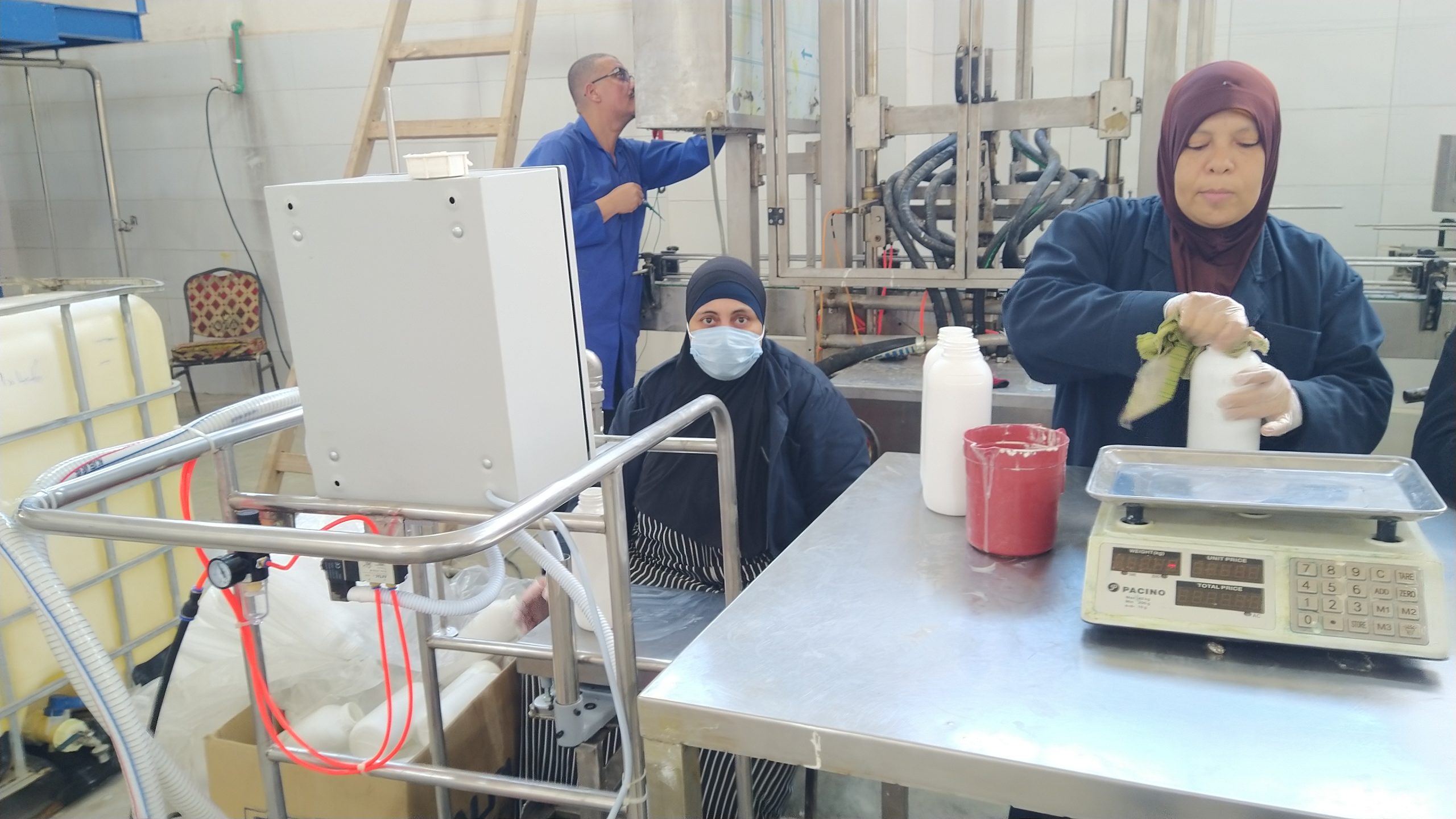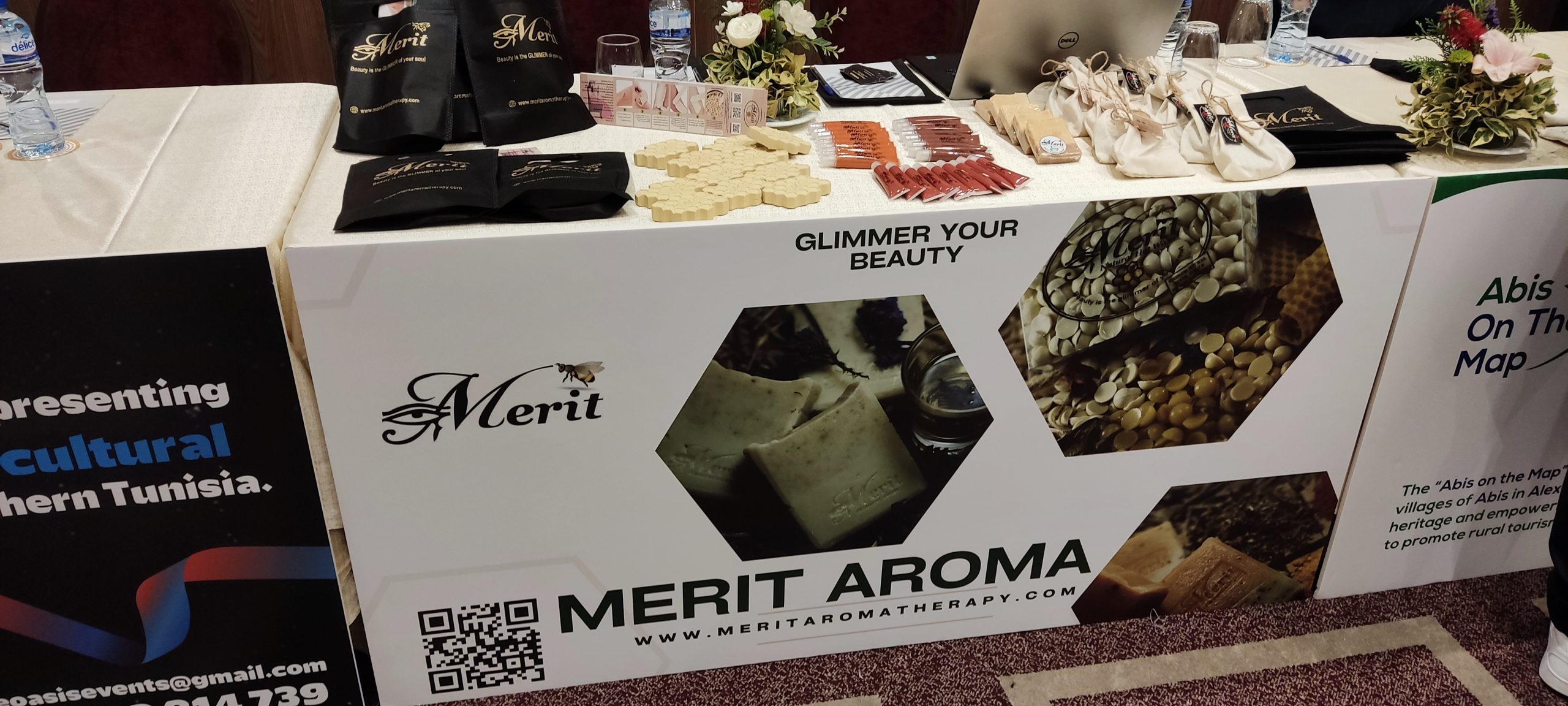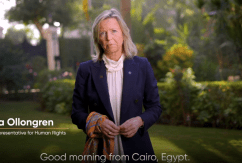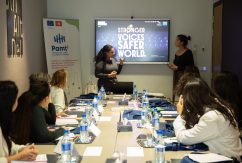INVESTMED: Making Entrepreneurship a Dream Come True
Hoda and Ahmed Abdelfattah embarked on an exciting journey when they founded Merit Aroma, a workshop producing natural beauty products in Alexandria, Egypt. Thanks to INVESTMED’s continued support, they were able to grow their business and hone their craft. The EU-funded project provided resources and opened doors to important networks in addition to vital knowledge about intellectual property rights (IPR).

A start-up springing from a couple’s Kitchen
A small workshop for natural beauty products is flourishing in Alexandria, founded by a young Egyptian couple. Ahmed and Hoda Abdelfattah started working from home a few years ago. They used the kitchen in their flat to test their own products and then offer them to friends. Ahmed works as an industrial engineer and Hoda works in the pharmaceutical sector.
In the beginning, they didn’t even think about selling their products. The couple’s main aim was to use their home-made soap and creams in everyday life.
Although their start-up is gradually gaining momentum, they have kept their respective jobs. Their company, called Merit Aroma, now has a website where people can buy online.
“Merit Aromas & Herbal Teas are a trend towards reuniting with nature. They have the ability to improve sleep, reduce stress and much more. The name itself comes from the first female doctor, Merit Ptah, who inspired the brand. She worked for the pharaoh and developed recipes and herbal medicine,” explains Ahmed Abdelfattah enthusiastically. Thanks to INVESTMED, an EU-funded project, he was able to design the branding and website of the start-up and buy more natural products thanks to a grant.
“When we learnt that we had been selected for the project, we rented a workshop not far from our house. Today, our goal is to grow and go further. We employ two people, depending on production needs,” he says.
When they started making their products, Ahmed and Hoda did not yet know how to sell them. “We were making soaps that had an almost eternal shelf life, so it took a while for customers to come back and buy more products. It was our relatives, for example, who told us to make smaller soaps so that they would be consumed faster and we would have better sales,” he adds.

A journey of growth and collaboration with INVESTMED
As Merit Aroma grew, Ahmed and Hoda’s path led them to an invaluable opportunity presented by INVESTMED. Speaking about their experience, Ahmed says: “Participating in INVESTMED has changed our perspective on things. We have learnt many business skills and have become aware of intellectual property rights (IPR). But the most important thing is that we met people from different Mediterranean countries with whom we could exchange ideas, and that broadened our horizons.’ With the support of INVESTMED, Merit Aroma has thrived and embodies the spirit of entrepreneurship and collaboration that is the mission of the project”, notes Ahmed.
Their new acquaintances came from different walks of life, but all of them were working on a project supported by the EU.
The INVESTMED project, Innovative, Sustainable Start-ups for the Mediterranean, aims to address both economic and environmental challenges and support new, sustainable business opportunities for young people and women in three countries: Egypt, Lebanon and Tunisia. It includes training and coaching MSME employees, raising awareness of intellectual property rights (IPR) protection and access to subsidies to help them grow and become sustainable.
“The project has provided grants to 38 MSMEs in the green, blue and creative industries and 3 incubators so that they can strengthen their financial sustainability and their contribution to job creation in the local economy”,” says Dr Esmat Karadsheh, coordinator of the Eastern Med Office-Interreg NEXT MED programme, adding that it “supports the development of sustainable entrepreneurship and business initiatives by creating a supportive environment and facilitating access to new markets, thereby increasing economic opportunities and the number of jobs”.

INVESTMED: Empowering entrepreneurs through education on intellectual property rights
In Egypt, the Confederation of Egyptian European Business Associations (CEEBA) was the implementing partner of INVESTMED. Mai Darwish, technical expert at CEEBA, explains how the project came about: “We wanted to support start-ups in several phases. At the beginning, we had to select those who presented the best business idea and who were sustainable. Training was offered on various topics. At the beginning, we helped participants to refine their ideas and manage their finances. There was also training on management skills and pitching training so that they could win tenders once they started to grow. There was also a summer school and a two-week trip to Italy. In addition to the skills acquired, networking was also very important. This opened the participants up to potential partners and allowed them to see what was happening in other parts of the Mediterranean. We wanted to give them all the tools to be successful in their business. Once the training was completed, they received subsidies and there was great success,” she says.
Everyone involved agrees that the speciality of this project was the introduction to intellectual property rights (IPR). In a strategic initiative tailored to entrepreneurs, INVESTMED helped participants understand the intricacies of IPR. The project began with engaging face-to-face sessions and delved into the basics of IPR, exploring both national and international frameworks and presenting real-life case studies that shed light on the complexities of this area.
“Now I realise the importance of intellectual property. I have learnt how to protect the products I have created. And I am no longer afraid of someone stealing my idea,” explains Ahmed Abdelfattah.
Thematic modules, tailored to the specific needs of entrepreneurs, offered a deep dive into the legal landscape and provided practical insights that align with the challenges of the entrepreneurial journey. The sessions went beyond traditional learning and focussed primarily on experiences and innovative solutions developed for registrations outside the MENA region. An IPR guide was also developed for entrepreneurs and public organisations, providing them with basic and familiar ways to raise awareness and eliminate misconceptions around IPR.





























 Syria
Syria 



